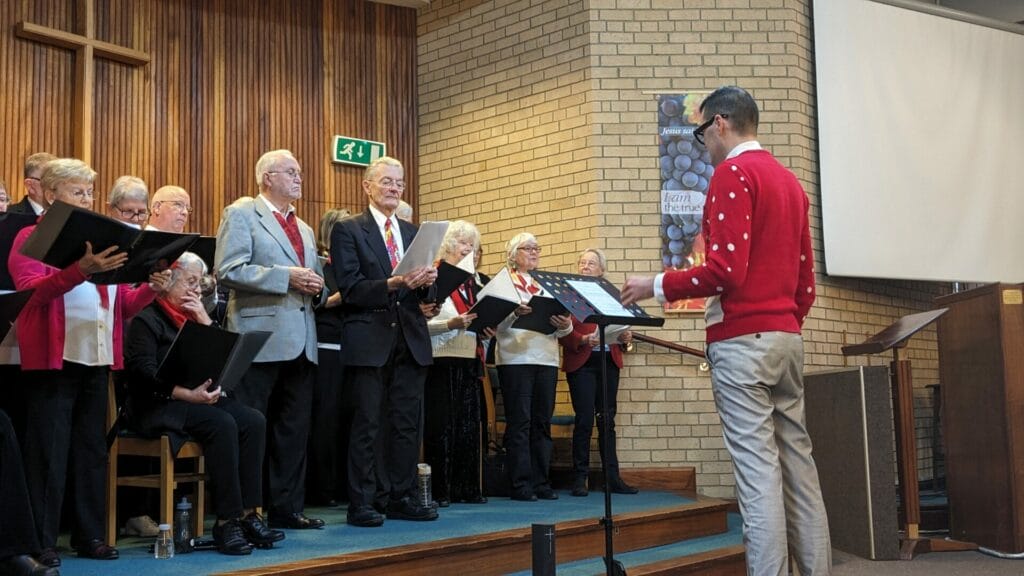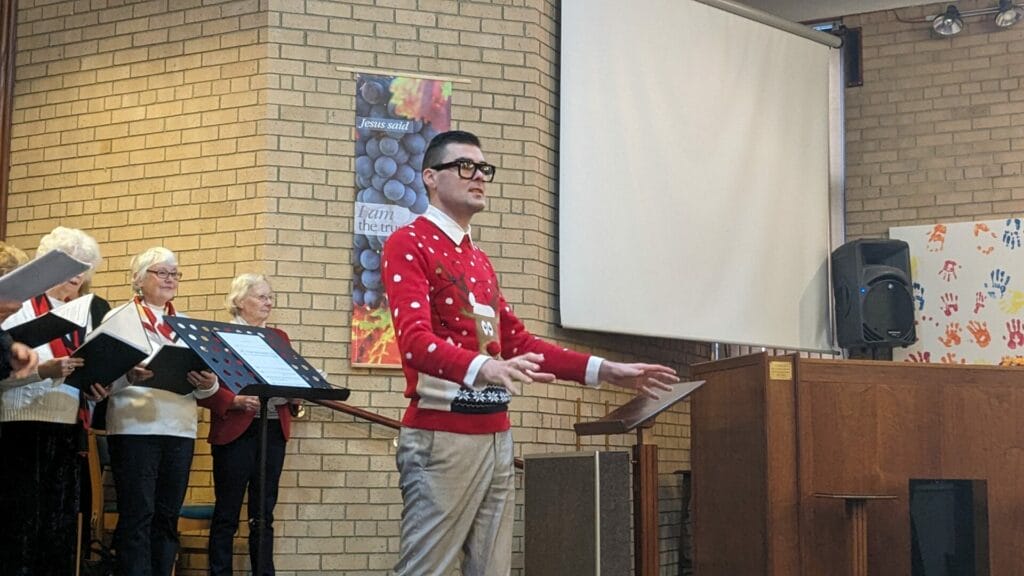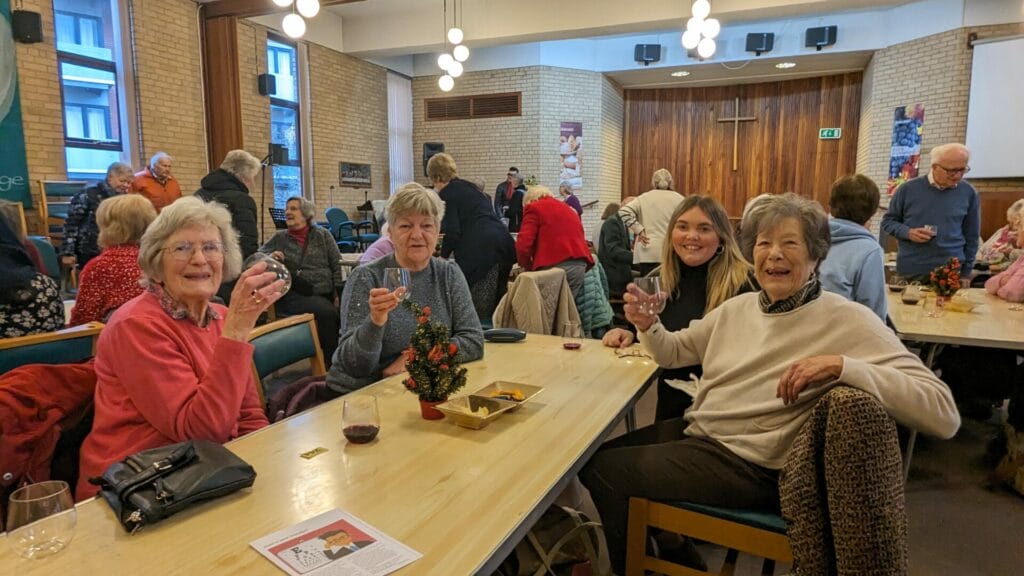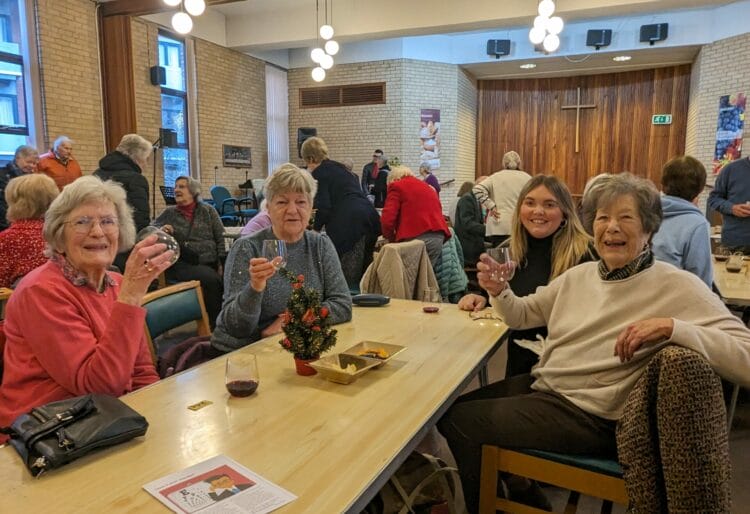THE READING branch of a charity supporting those with sight loss has started the seasonal festivities already with its Christmas party.
The Reading support group of the Macular Society, which helps those with macular disease, welcomed members for an afternoon of fun and festivities at Abbey Baptist Church on Wednesday, November 29.
The Silver Tones Choir kicked off proceedings with a full performance which included Da Do Run Run, You Raise Me Up by Westlife, and Happy Together by The Turtles, led by Derry Pope.
They also performed Christmas favourites Spirit of the Season, and Santa Baby, before closing with an ebullient rendition of Andy Williams’ It’s the Most Wonderful Time of the Year.

Attendees were then invited to take part in a group quiz to contend for a top prize, with party food and mulled wine set out.
Macular disease is caused by damage to part of the retina in the eyes, resulting in blurred or reduced vision affecting the centre of the visual field.
It can come as a result of age, which is most common, but can affect younger people too.
There are currently no treatments to reverse the effects of macular disease, and treatments are designed to slow and manage development of further sight loss.
More information about macular disease is available via: macularsociety.org
Tony Hassan, chair of the Reading Support Group of the Macular Society, said at the event: “We’ve put on an early Christmas party as members have so many things going on in December.
“We have tea and coffee, a raffle, and of course the choir.”
He explained that the events that the group runs across the year are “absolutely essential” for members.
“The main problem with people like myself in the group is getting out and about, and there’s a real danger of isolation.
“Once people lose some of their sight, they get self-concious and afraid, and tend to stay at home.
“So getting them out to events– we have guest speakers, events, trips such as boat rides or journeys over to the coast– and getting them together, they find that it’s not the end of the world.”
As age-related macular disease is the most common form, those with the condition aren’t always able to use technology in the way that younger people experiencing sight loss can use to access support.
Mr Hassan explained: “For most of our attendees, we’re technophobes, and more and more everything is on a screen.
“Which is a problem, as we can deal well with buttons, but not screens.”
For those experiencing sight loss or macular disease and who are looking for support or like-minded people, Mr Hassan recommends stopping by at one of the group’s regular events
“We’re always looking for more members; come along and try us, or get in touch.”
Attendee Sue Brookes said at the event: “When you’re losing your sight, you think that it’s the end of your life, but getting together with others like this makes you realise it’s not.
“I think we’re very lucky in Reading for the support we get for visual impairment, as I know it’s just not there in other places.”
She said that the events run by the Reading branch of the Macular Society have been a lifeline: “It also signposts services and support; you swap recipes, almost, because you speak to others who know where to get support.
“We also get talks from eye consultants and specialists, as well as trips out to museums, boat trips, and that kind of thing.
“It can be very depressing when you’re first told, but you get to know people here, share advice about visual aids– it’s just fantastic.”


The Reading support group meets at Abbey Baptist Church, central Reading, on the last Wednesday of the month from 2pm-4pm.
Full details about The Macular Society and macular disease more generally is available via: macularsociety.org, or by calling 0300 3030 111
























